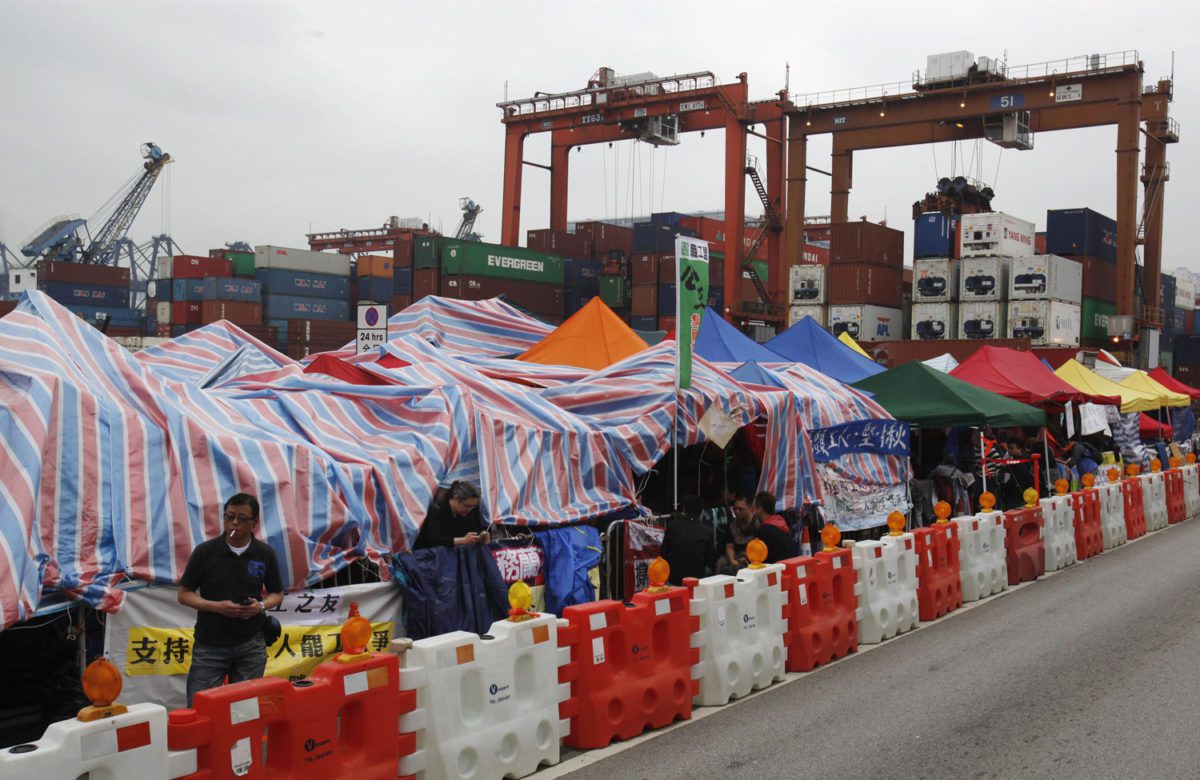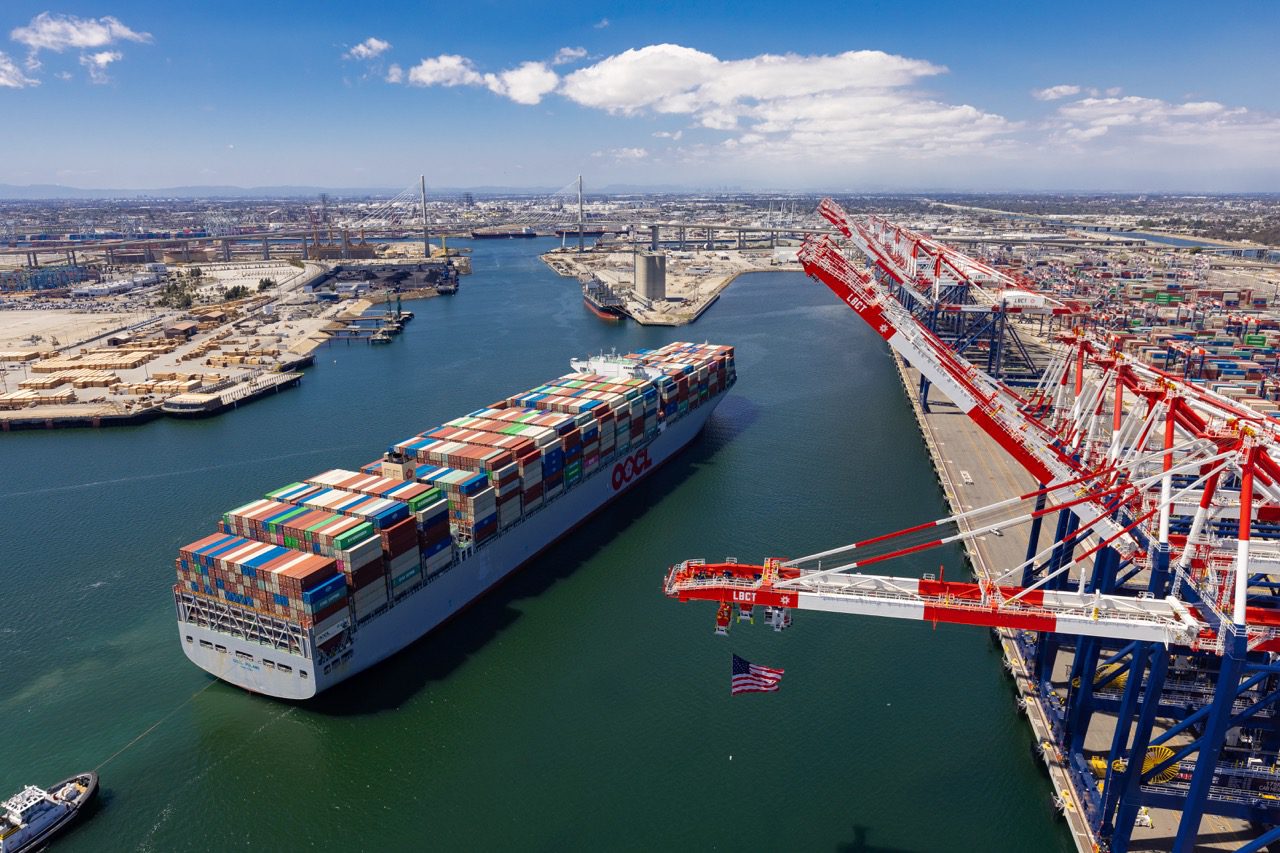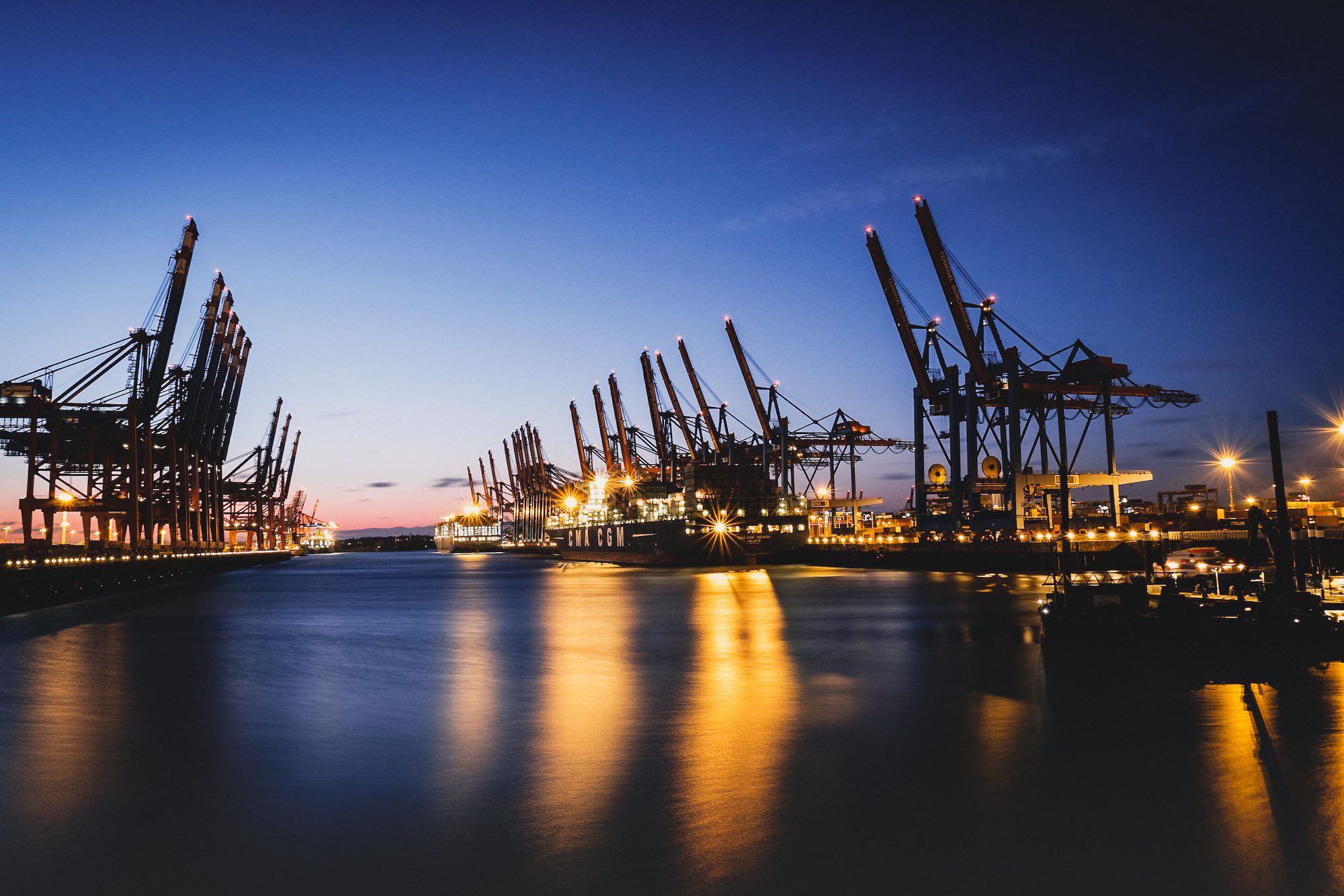Dock workers stay in tents during a strike outside Kwai Chung container terminal, which is operated by Hong Kong International Terminals Ltd., in Hong Kong April 10, 2013. Talks aimed at ending the two-week strike by hundreds of workers have begun on Wednesday, with workers demanding eight-hour workdays, a wage rise and longer meal breaks and rest periods, government radio reported. REUTERS/Bobby Yip
 By James Pomfret and Grace Li
By James Pomfret and Grace Li
HONG KONG, April 10 (Reuters) – Striking dock workers at a port operator backed by Hong Kong’s richest man Li Ka-shing failed to reach a deal for higher pay on Wednesday, prolonging a dispute that could cost the city its position as the world’s third-largest container port.
Roughly 500 workers, who say they have not had a pay rise in 10 years even as the cost of living has soared, are demanding a hike of around 20 percent and better work conditions.
The strike has hit a nerve in Hong Kong, where a growing wealth gap and some of the world’s highest property prices have piled pressure on leader Leung Chun-ying and brought the city’s tycoons head-to-head with the government, which was sworn in last July amid a raft of populist promises.
“We raised some treatment issues, including meals, overtime and leave but hadn’t got to the issue of salaries before they said they needed to go for lunch,” said Wong Shiu-cheung, representative from the Union of Hong Kong Dockers, referring to talks with contractors for the port operator and labour department officials.
“We told them…we would always be willing to talk to them, whenever they want, even at midnight. But there’s no response yet as to when the next meeting will be.”
Port operator Hongkong International Terminals (HIT) has distanced itself from the dispute, saying it should be resolved by contractors who supply workers to the berths it operates.
The Hong Kong Association of Freight Forwarding and Logistics estimates 120,000 twenty-foot equivalent units (TEUs) have stacked up during the strike, which is now in its 14th day.
The dispute, a rarity in Hong Kong’s free market economy, has caused delays of up to 60 hours at the port and is costing HIT about $640,000 a day, according to local media.
Port operator officials were not immediately available to comment after the first round of talks on Wednesday. Contractors involved in the dispute could not be reached for comment.
WORKERS HIT OUT AT LI KA-SHING
At one of the berths operated by HIT, workers waved banners denouncing Li, who controls 70 percent of Hong Kong’s container port traffic, depicting him as an octopus snatching money from people.
“It’s his fault that the strike has dragged on for so long,” said container dock worker Ng Mei-tak, 46. “As the richest man, with all those businesses, I hold him accountable for not stepping in and for the impact of this strike on the Hong Kong economy.”
Workers say HIT has given extra money to its five major contractors in the past few years, but that this has not filtered through to frontline dock workers.
“They’ve cheated us for many years,” said Tam Chung-ming, a crane operator for Global Stevedoring Service, one of the contractors embroiled in the dispute. “We are overworked, not given enough rest time, and we don’t have proper toilet breaks. We have to shit in newspapers in our cranes.”
Contractors and port operator officials could also not immediately be reached for comment on work conditions.
Hong Kong’s public has become increasingly vocal over the city’s yawning wealth gap, taking to the streets to protest against the government and the city’s wealthy tycoons.
Li’s businesses span nearly every facet of life in Hong Kong – ports to property, telecoms to food and health and beauty – making it hard to get by without contributing to his empire.
COMPETITION HEATS UP
Hong Kong, which serves as the gateway to mainland China’s manufacturing heartland, ranks as the world’s third-largest port, after Shanghai and Singapore, but the strike has diverted some traffic to the neighbouring Chinese port of Shenzhen, where Li, 84, also operates berths.
Competition among regional ports has intensified, with transshipments increasingly important as China moves more toward importing and exporting directly.
“Hong Kong has been falling into this fight for transshipments … Hong Kong must be extra-competitive to induce people to ship here,” said a former HIT executive, who declined to be named given his close ties to the industry.
The volume of cargo handled by HIT stands at about 80 percent of capacity, it said on Tuesday.
Some industry players said it was unclear for now how much the strike would impact Hong Kong.
“It’s a matter of whether it is a one-time disruption or if there’s something structural going on. It’s way too early to ascertain any of that,” said Andy Tung, chief executive of Orient Overseas Container Line
($1 = 7.7638 Hong Kong dollars) (Additional reporting by Rujun Shen; Editing by Anne Marie Roantree and Ed Davies)
(c) 2013 Thomson Reuters, Click For Restrictions

 Join The Club
Join The Club











